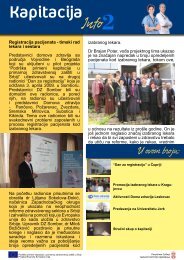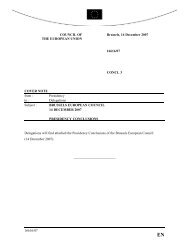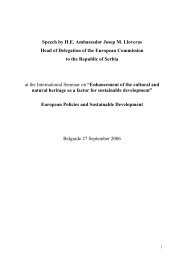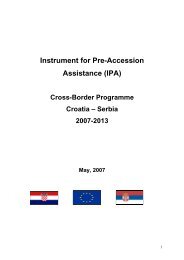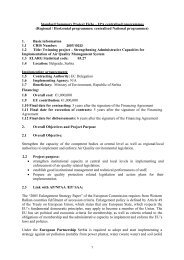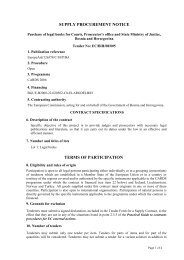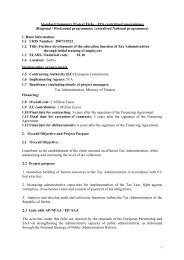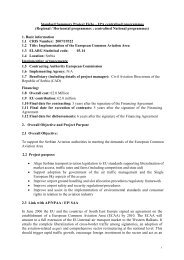YOUR SCHOLARSHIP IN EUROPE
YOUR SCHOLARSHIP IN EUROPE
YOUR SCHOLARSHIP IN EUROPE
Create successful ePaper yourself
Turn your PDF publications into a flip-book with our unique Google optimized e-Paper software.
166<br />
Your Scholarship in Europe 2008-2009<br />
United Kingdom<br />
BASIC <strong>IN</strong>FORMATION ABOUT THE UNITED K<strong>IN</strong>GDOM<br />
The United Kingdom of Great Britain and Northern Ireland is located off the north-western coast of<br />
Europe between the Atlantic Ocean and the North Sea. It is separated from the continent by the<br />
Strait of Dover and the English Channel, and from Ireland, or the Republic of Ireland, by the Irish<br />
Sea and St. Georges Channel. The United Kingdom comprises four constituents: England, Wales<br />
and Scotland, which form Great Britain, as well as Northern Ireland and several island groups.<br />
The United Kingdom has a population of approximately 60 million people. The offi cial language<br />
is English, although Welsh and Gaelic are spoken by minorities in Wales and the Scottish Highlands,<br />
respectively. The capital of the country is London. The United Kingdom is a constitutional<br />
monarchy. The head of state is Her Majesty Queen Elizabeth II. There is no written constitution<br />
in the British system, but the Constitution refers to the Crown, succession to the Crown, the UK<br />
Parliament, and the Union of Scotland, Wales, England and Northern Ireland.<br />
THE HIGHER EDUCATION SYSTEM<br />
Higher education in the United Kingdom is provided by three main types of institutions:<br />
universities, colleges and higher educational institutions, and art and music colleges.<br />
The binary line separating universities and polytechnics was abolished and polytechnics<br />
have been given university status and acquired university titles. Most universities<br />
are divided into faculties, which may be sub-divided into departments. Students have<br />
to pay tuition fees, which can differ depending on whether the student is a resident of<br />
the European Union or from a non-European country.<br />
University level fi rst stage: Undergraduate stage<br />
This stage lasts for three or four years and leads to a Bachelors degree in the arts, science<br />
or other fi elds (technology, law, engineering, etc.). In some universities and colleges of<br />
higher education, a two-year course leads to a Diploma in Higher Education (DipHE). This<br />
is a recognised qualifi cation in its own right. In some universities, students must follow a<br />
foundation course before embarking on a course leading to a Bachelors degree. Students<br />
of foreign languages are usually required to study or work for an additional year in the<br />
country of the target language. Sandwich courses generally involve an additional year's<br />
work experience. Some institutions have introduced accelerated two-year degrees requiring<br />
students to study during the normal vacation period.<br />
University level second stage: Masters degree<br />
A Masters degree is conferred after one or two years' study following a Bachelors degree.<br />
Study is in a specialised fi eld. In some cases, the degree is awarded after taking



